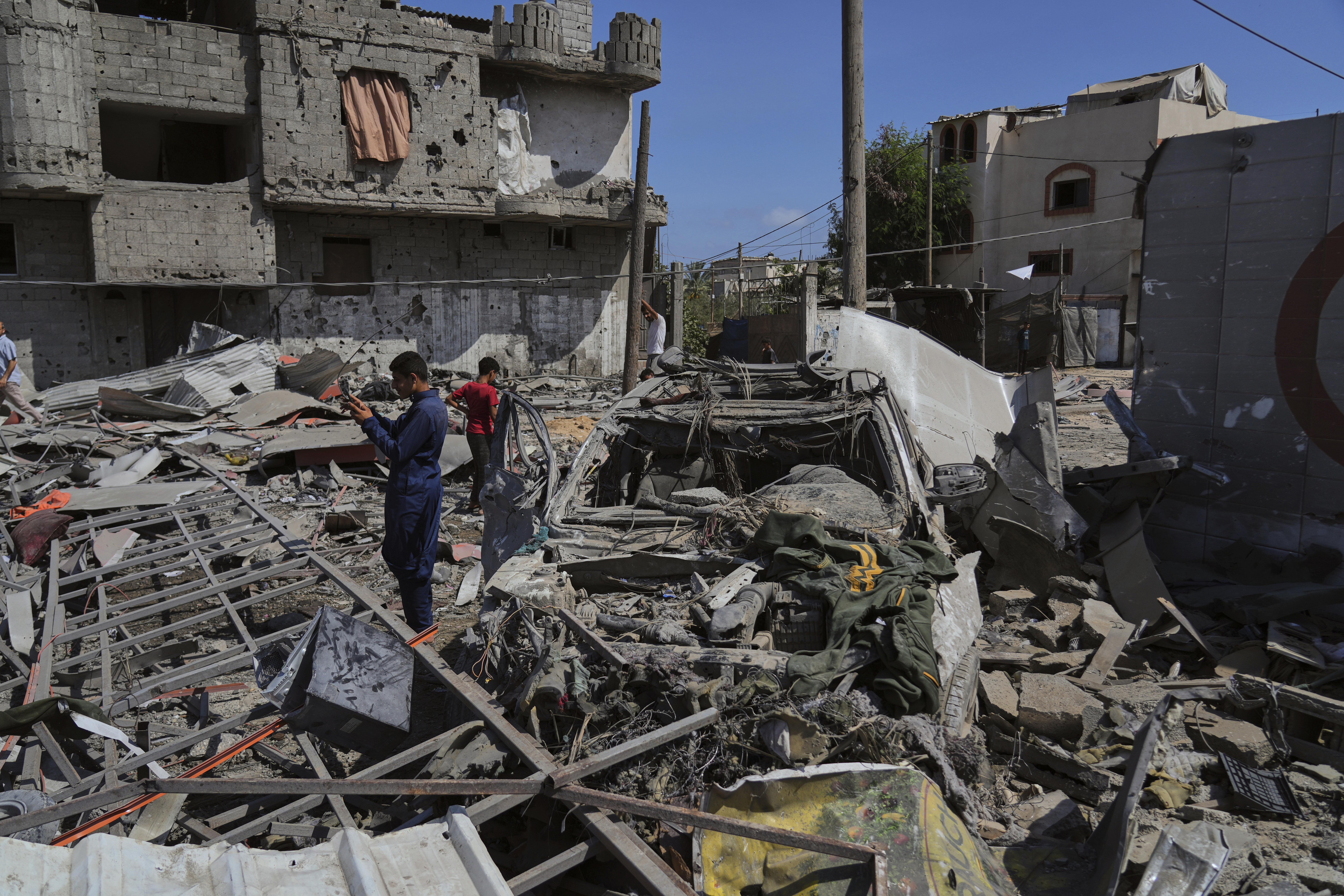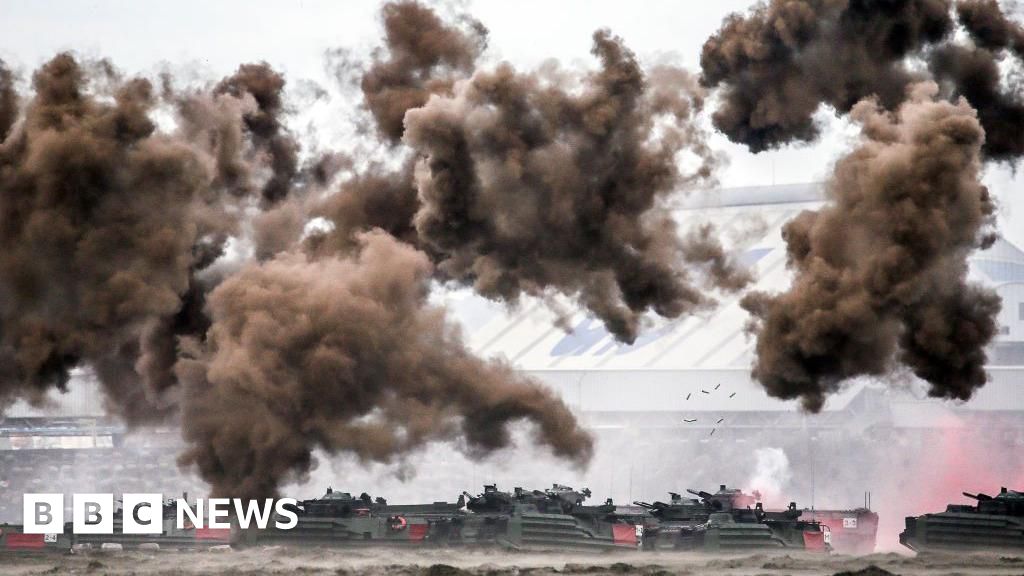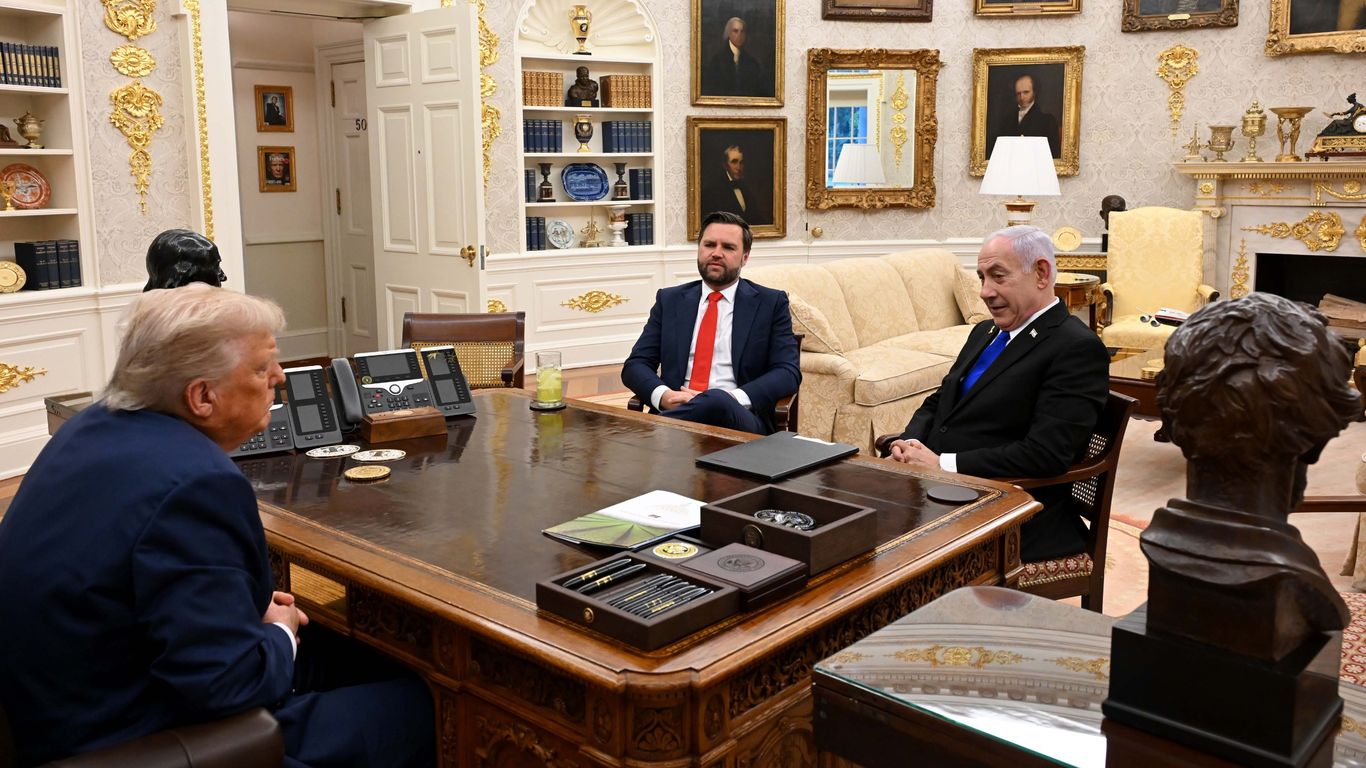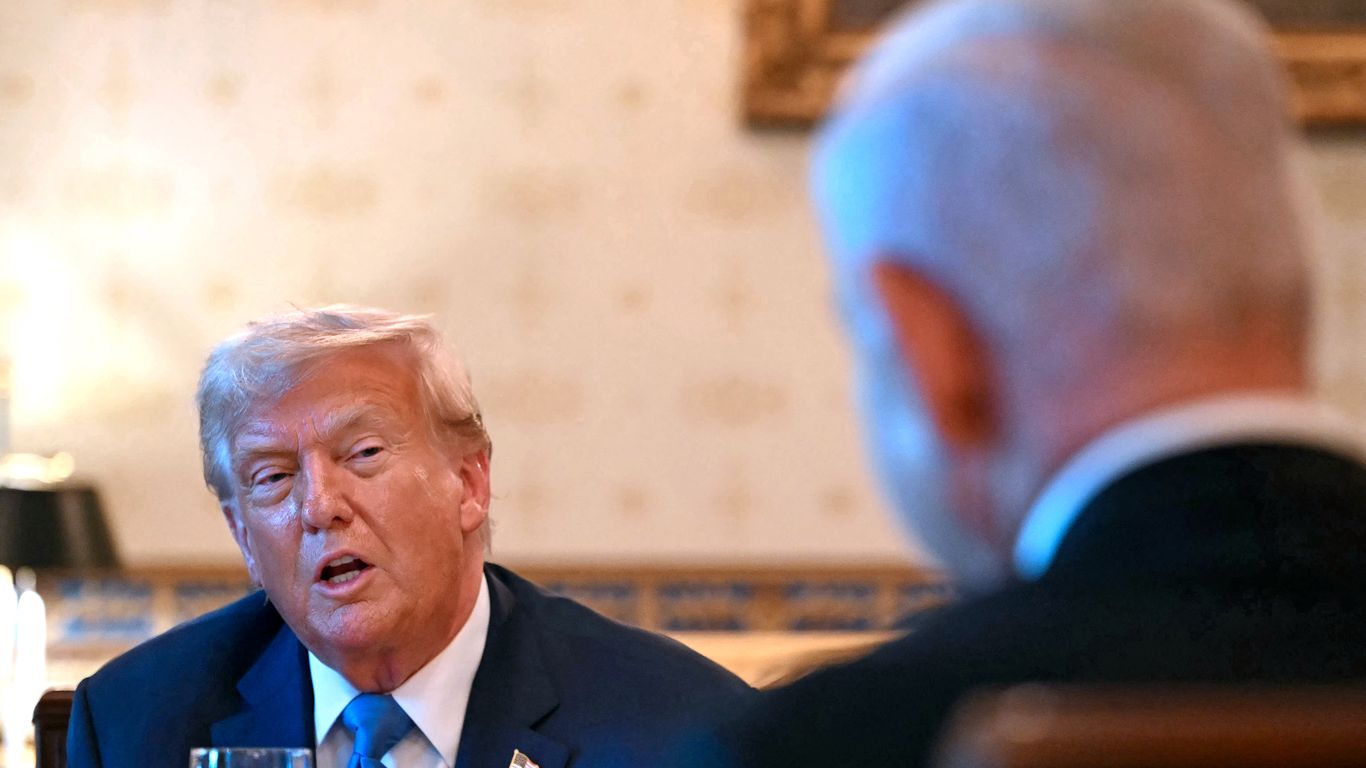Israel Strikes Military Tanks in Southern Syria as Syrian Forces Clash with Druze Militias
Israel Strikes Military Tanks in Southern Syria as Syrian Forces Clash with Druze Militias
The ongoing conflict in Syria has taken a new turn as Israel launched airstrikes on military tanks in southern Syria. These strikes were in response to the clashes between Syrian government forces and Bedouin tribes with Druze militias in the area. The region has witnessed an increase in violence as dozens of people have been killed in the fighting between local militias and clans in Syria's Sweida province. The Syrian government has also deployed security forces to the area to contain the situation.
The Root of the Conflict
The conflict in southern Syria stems from the complex dynamics between different groups in the region. The Druze militias, who are aligned with the Syrian government, have been facing opposition from Bedouin tribes who seek autonomy. The presence of the Israeli airstrikes has further complicated the situation and raised concerns of a potential escalation of violence
About the People Mentioned
Bedouin
The **Bedouin** are traditionally nomadic Arab tribes who have inhabited the deserts of the Middle East and North Africa for millennia, with roots tracing back to at least 6000 BCE in the Syrian steppe. They historically earned their livelihood through **pastoralism**, herding camels, sheep, and goats, and by facilitating caravan trade across harsh desert environments. Their lifestyle required constant mobility due to scarce water and grazing land[1][9]. Bedouins are known for their distinctive social structure based on tribal affiliations, with strong codes of honor and hospitality. Their oral tradition is rich, with knowledge and customs passed through generations in communal gatherings called *majlis*. These sessions served as informal schools where young men and women learned tribal laws, social norms, poetry, and history[6]. They speak various dialects of Arabic, often considered by early medieval scholars to represent the purest form of the language[1]. Culturally, Bedouin men traditionally wear long robes (*gallabeya*) and headscarves, while women wear colorful dresses and cover their hair. Historically, women also wore face veils, although this practice has diminished among younger generations[4]. Islam, particularly Sunni Islam, is deeply embedded in Bedouin culture, with many tracing their lineage back to early Muslim tribes[4]. In modern times, many Bedouin have settled in towns and cities, especially in countries like Jordan, Israel, and Egypt, while some continue to maintain nomadic or semi-nomadic lifestyles. They remain environmentally conscious custodians of the desert, practicing sustainable grazing and protecting natural resources through tribal laws[5][7]. Bedouin handicrafts, particularly those produced by women, have gained recognition as a source of cultural preservation and income, despite challenges such as reduced tourism following regional political instability[7]. Overall, the Bedouin represent a resilient and culturally rich people whose traditions continue to adapt while preserving a unique desert heritage.
Druze militias
Druze militias are armed groups associated with the Druze, a small, secretive religious and ethnic community primarily found in Syria, Lebanon, and Israel. Historically, the Druze have played significant roles in Middle Eastern conflicts, often defending their mountainous homelands and maintaining autonomy through local militias. During the Ottoman era, Druze feudal lords held considerable power, and the community was noted for resisting external control. In modern times, Druze militias have been active in the Syrian civil war, with groups such as Jaysh al-Muwahhidin, which mainly engaged in defensive operations while supporting the Syrian government under Bashar al-Assad, and the Druze Al-Jabal Brigade, which notably participated in the 2024 Syrian opposition offensives that led to the downfall of the Ba'athist regime[1]. Another group, the Men of Dignity, emerged around 2014 with a focus on local defense and reform rather than outright opposition or support for the Syrian government; its founder Wahid al-Balous was assassinated in 2015, and the group continued under new leadership with ambiguous alliances[4]. Historically, Druze militias were involved in sectarian conflicts such as the 1976 offensive against Christian villages in Lebanon, resulting in significant civilian casualties and displacement[3]. The Druze have often balanced between cooperation and conflict with surrounding groups, maintaining a strong communal identity and defending their territories. Currently, Druze militias remain relevant as local defense forces in the turbulent Levant, navigating complex political landscapes marked by regional conflicts and shifting alliances. Their activities reflect both the community’s desire for survival and influence in their traditional areas, as well as participation in broader national struggles in Syria and Lebanon.
About the Organizations Mentioned
Israeli
The query "Israeli" does not correspond to a specific organization but rather refers broadly to entities related to Israel. Based on the search results, there is no single organization named "Israeli" to profile. Instead, the available information focuses on the nature of business entities and company formation in Israel, rather than a particular company or organization called "Israeli." To provide a relevant and comprehensive summary aligned with the query’s likely intent—information on Israeli business entities and companies—here is an overview: In Israel, the legal framework for business organizations is primarily governed by the **Israeli Companies Law of 1999** and related regulations. The most common and prominent business entity is the **Private Company Limited by Shares**, which offers limited liability to its shareholders. Companies may be established by one or more individuals or legal entities, regardless of nationality or residency. Registration is conducted through the **Registrar of Companies** in the Ministry of Justice, a process that typically takes about two weeks and costs up to around US$2,000, including legal fees[1][2][3][6]. Israeli companies can be either **private** or **public**. Private companies have restrictions on share transferability, limited shareholders (up to 50), and cannot offer shares to the public. Public companies have at least seven shareholders and may issue shares or debentures on the stock exchange, subject to regulatory compliance such as publishing annual audited financial reports[2]. Key steps in forming an Israeli company include selecting a unique, non-misleading company name, drafting detailed **Articles of Incorporation** (covering company goals, capital structure, liability limits, and governance), and filing declarations by directors and shareholders authenticated by attorneys[4][5]. Israel’s business environment supports various legal entities including partnerships and nonprofit organizations, with tailored tax and reporting requirements. Israeli companies must submit annual audited financial statements, ensuring transparency and accountability. Israel’s robust legal and regulatory framework makes it an attractive location for startups and established businesses
Syrian government
The **Syrian government** is the central authority responsible for governing Syria, currently undergoing a significant transitional phase following the fall of the Assad regime in early 2025. The new government was officially established in late March 2025, composed of twenty-three ministers from diverse backgrounds aiming to rebuild the country’s institutions after more than five decades of authoritarian rule and nearly fourteen years of devastating conflict[2]. This transitional government operates under the **2025 Interim Constitutional Declaration**, a temporary constitution designed to structure governance for five years (2025–2030). It establishes a presidential system where the president holds executive power, appointing ministers directly, and there is no prime minister position. Islamic law is enshrined as the primary source of legislation, while the constitution pledges equality regardless of religious or ethnic background and guarantees judicial independence through the creation of a Supreme Judicial Council overseeing ordinary and military courts[1][3]. Key challenges the Syrian government faces include fragile security, especially in regions controlled by the Syrian Democratic Forces (SDF), and continued international sanctions related to past human rights abuses under Assad. Efforts to integrate the SDF into national institutions began with an agreement signed in March 2025, but its implementation remains uncertain[2]. The government is adopting a **hybrid governance model**, mixing centralized control from Damascus with localized administration and justice systems emerging from local communities during the conflict. This decentralized approach has helped maintain basic services but also exacerbated sectarian tensions and security challenges[4]. Politically, the government shows signs of cautious liberalization, allowing some public participation, but retains ideological control, particularly in ministries like Interior, Defense, and Religious Affairs, dominated by figures aligned with Islamist factions such as Hay’at Tahrir al-Sham (HTS)[5]. This balance reflects a leadership style combining outward consultation with hardline ideological governance. In sum, the new Syrian government represents a fragile but pivotal attempt to stabilize and rebuild Syria, balancing security, political reform, justice, and economic recovery
Bedouin tribes
The **Bedouin tribes** are a traditional nomadic and pastoralist social organization primarily found in the deserts of the Middle East and North Africa, including the Arabian Peninsula, Sinai, Syria, Jordan, Israel, and surrounding regions. Their society is deeply rooted in a tribal structure based on kinship, with key units including the *Bayt* (family tent or house), *Aela* (clan), and *Qabilah* (tribe). Each tribe is led by a *Shaykh* (tribal leader), who is often selected for wisdom and judgment or inherits leadership through lineage. The tribe functions as a major source of identity, social support, and economic security, historically controlling land, labor, and water resources collectively[1][4]. Bedouin society predates Islam by many centuries and relies heavily on oral traditions and a strict code of loyalty within the tribe. Historically, tribes organized themselves into hierarchical segments, from extended families to large tribal confederations, with solidarity not only within but also between allied tribes. Bedouins traditionally sustained themselves through herding camels, sheep, goats, and sometimes cattle, migrating seasonally between desert and cultivated lands. They also engaged in hunting, trading, raiding, and protection of caravans, which integrated them into regional economies[2][5]. In modern times, Bedouin tribes face significant transformations due to urbanization, loss of traditional livelihoods, and political pressures. Though the tribal structure still provides social identity and cohesion, many Bedouins have transitioned to settled life, while others maintain semi-nomadic practices. Challenges include marginalization, especially in places like Israel’s Negev desert, where Bedouin communities contend with displacement and limited access to resources. Despite these changes, Bedouin culture remains notable for its resilience, hospitality, distinctive dialects, and rich traditions that continue to influence the cultural landscape of the Middle East[6][8]. For reader
Druze militias
The Druze militias are armed groups primarily located in southern Syria, particularly in the Suwayda Governorate, where the Druze population is concentrated. These militias have been involved in various conflicts, including defensive actions against ISIS and other rival factions during the Syrian Civil War[1]. Historically, the Druze have maintained a stance of neutrality but have been forced to organize militarily to protect their communities. **History and Development**: The Druze have a long history of resistance, dating back to the French Mandate period in Syria. However, their role in the Syrian Civil War was more defensive, focusing on local security rather than national politics[3]. The Suwayda Military Council, established in December 2024, is a notable example of Druze militancy aimed at protecting Druze-majority areas and advancing secularism and decentralization[5]. **Current Status**: The Druze militias are currently engaged in an insurgency against the Syrian transitional government, which began in early 2025 following the fall of the Assad regime. This conflict centers around control of Druze-majority areas and tensions with local Muslim Bedouins[2]. The militias have refused to disarm and integrate into government forces, citing corruption and sectarian targeting[4]. **Notable Aspects**: The Druze militias have received support from Israel, which has launched airstrikes in support of the Druze due to their close ties with the Israeli Druze community[2]. The militias' demands include autonomy in local governance and protection from external militias, aligning with international community expectations for minority rights[4]. Despite these efforts, the situation remains tense, with ongoing clashes and mistrust between the Druze and the Syrian government[3]. Overall, the Druze militias play a significant role in the complex political landscape of southern Syria, driven by a desire for security and autonomy amidst broader regional tensions.



















